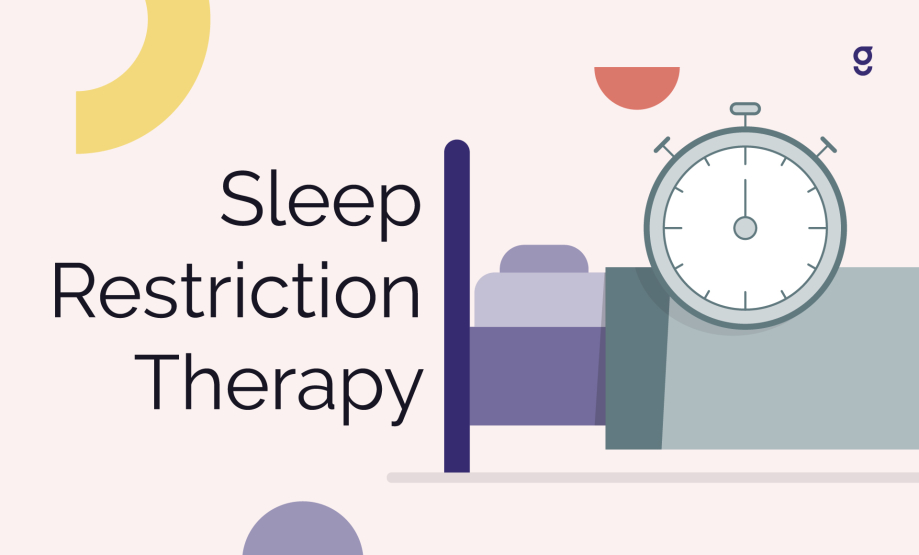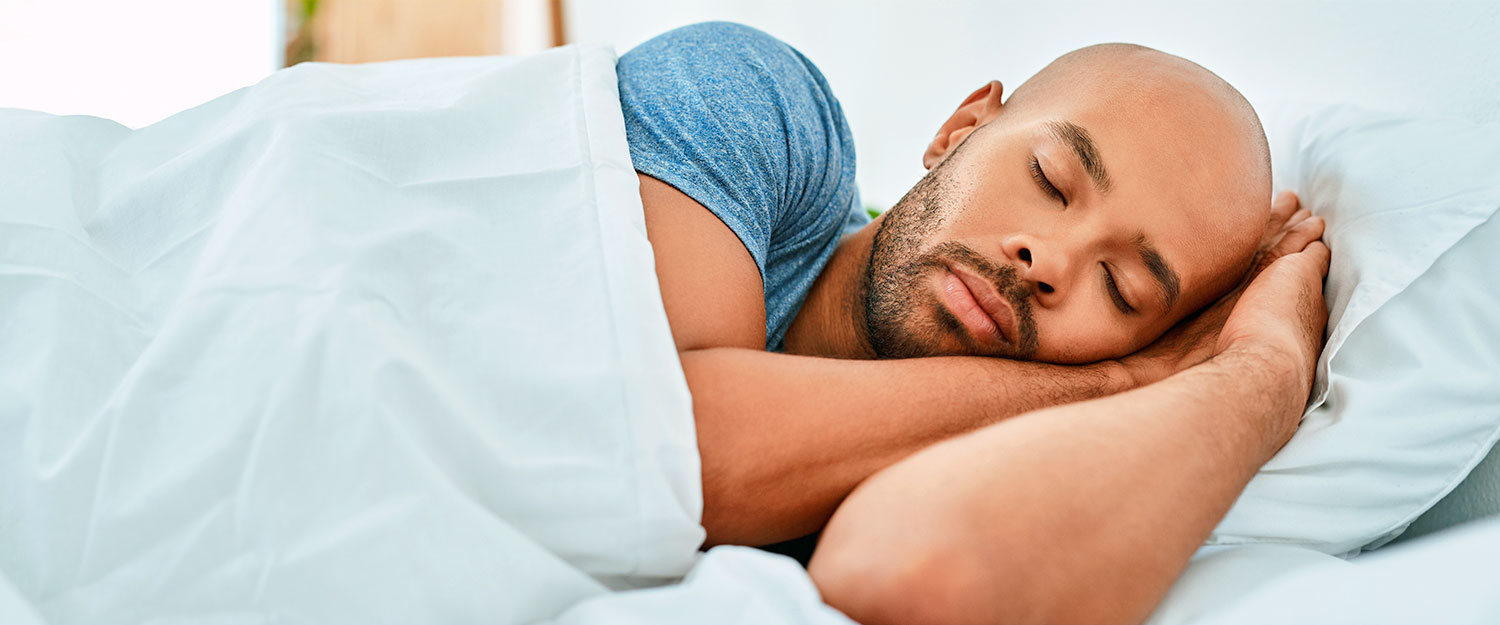Advanced Sleep Therapy - Accomplish Deep, Relaxing Sleep
Reliable Treatment Solutions for Handling Sleep Disorders and Enhancing Peaceful Sleep
In the world of healthcare, the monitoring of rest conditions and the quest for relaxing rest are pivotal elements of total well-being. As we navigate the detailed landscape of sleep conditions and look for to improve our sleep experience, a much deeper understanding of these treatment options might hold the key to opening an extra refreshing and meeting restorative journey.
Cognitive Behavior Therapy for Sleep Problems (CBT-I)
Cognitive Behavioral Therapy for Sleeplessness (CBT-I) is an organized, evidence-based treatment approach that focuses on addressing the underlying elements contributing to rest disruptions. This kind of therapy aims to customize habits and ideas that worsen sleeping disorders, inevitably advertising healthy and balanced rest patterns. CBT-I generally includes a number of essential parts, consisting of cognitive treatment, sleep restriction, stimulus control, and rest health education.
Cognitive treatment assists people recognize and change negative idea patterns and ideas regarding rest that might be impeding their ability to fall or remain asleep. Rest constraint includes restricting the quantity of time invested in bed to match the person's real sleep duration, therefore increasing rest effectiveness (sleep improvement therapy). Stimulation control strategies assist establish a solid organization between the bed and rest by motivating people to head to bed just when sleepy and to avoid taking part in promoting activities in bed
In addition, sleep hygiene education concentrates on creating healthy and balanced sleep practices, such as maintaining a consistent sleep timetable, creating a relaxing going to bed regimen, and maximizing the rest setting. By attending to these variables adequately, CBT-I provides an effective non-pharmacological treatment for handling sleeplessness and enhancing overall rest high quality.
Rest Hygiene Practices
Having established the structure of cognitive restructuring and behavioral adjustments in dealing with insomnia with Cognitive Behavior modification for Sleeplessness (CBT-I), the focus now changes in the direction of checking out necessary Sleep Health Practices for preserving optimum sleep top quality and overall health.
Sleep hygiene techniques encompass an array of practices and ecological aspects that can dramatically impact one's capacity to fall asleep and remain asleep throughout the evening. Regular sleep and wake times, creating a relaxing bedtime regimen, and maximizing the sleep setting by keeping it dark, quiet, and cool are important elements of excellent rest hygiene. Restricting direct exposure to screens before bedtime, avoiding stimulants like high levels of caffeine near going to bed, and involving in regular physical activity throughout the day can additionally promote better sleep quality.
Additionally, practicing leisure techniques such as deep breathing exercises or reflection before bed can help calm the mind and prepare the body for rest. By including these rest health methods into one's daily routine, individuals can develop a healthy sleep pattern that sustains peaceful sleep and overall well-being.
Relaxation Strategies and Mindfulness
Applying leisure methods and mindfulness methods can play a critical role in cultivating a feeling of tranquility and promoting quality rest. insomnia counseling. These methods intend to peaceful the mind, reduce stress, and develop an optimal setting for peaceful sleep. One commonly practiced technique is deep breathing exercises, where individuals concentrate on slow-moving, deep breaths to loosen up the mind and body. Progressive muscle leisure includes tensing and after that launching each muscular tissue team, promoting physical relaxation. Furthermore, guided imagery can help transport individuals to a peaceful location in their minds, assisting in anxiety reduction and boosting sleep top quality.
Mindfulness techniques, such as meditation and yoga, are likewise effective in advertising leisure and improving sleep. Mindfulness encourages people to remain present in the minute, letting go of concerns regarding the past or future. By including these techniques into a bedtime routine, individuals can signify to their bodies that it is time to prepare and loosen up for rest. Overall, incorporating leisure techniques and mindfulness practices can substantially add to managing rest conditions and enhancing overall sleep quality.

Medicine Options for Sleep Disorders
After checking out leisure techniques and mindfulness techniques as non-pharmacological interventions for enhancing rest top quality, it is necessary to consider medicine options for people with rest disorders. In cases where way of life modifications and therapy do not give sufficient relief, medication can be a valuable tool in managing sleep disturbances.
Frequently recommended drugs for rest conditions include benzodiazepines, non-benzodiazepine hypnotics, antidepressants, and melatonin receptor agonists. Antidepressants, such as trazodone, can be this post useful for people with co-occurring clinical depression and sleep disturbances - insomnia specialist.
It is crucial for people to seek advice from with a doctor to establish one of the most suitable medication choice based on their details rest disorder and case history.
Light Treatment for Circadian Rhythm Law
Light therapy, additionally referred to as phototherapy, is a non-invasive therapy method used to manage circadian rhythms and boost sleep-wake cycles. This treatment includes direct exposure to brilliant light that imitates all-natural sunshine, which helps to reset the body's body clock. By exposing people to specific wavelengths of light, normally in the morning or night depending upon the desired impact, light treatment can properly change the body clock to promote wakefulness throughout the day and improve relaxing sleep during the night.
Research has revealed that light treatment can be particularly here beneficial for individuals with body clock problems, such as delayed sleep stage syndrome or jet lag. It can likewise be helpful for those experiencing seasonal affective problem (SAD), a kind of anxiety that generally happens throughout the cold weather when natural light exposure is minimized. Light treatment is usually well-tolerated and can be utilized along with various other therapy techniques for sleep conditions to enhance end results and enhance total rest top quality.
Conclusion
Finally, reliable treatment remedies for taking care of sleep disorders and improving relaxing sleep consist of Cognitive Behavioral Treatment for Insomnia (CBT-I), sleep hygiene methods, relaxation techniques and mindfulness, medication options, and light therapy for body clock policy. These methods can assist people enhance their sleep quality and total well-being. It is essential to talk to a doctor to determine the most ideal technique for attending to sleep concerns.
As we browse the complex landscape of rest conditions and seek to enhance our rest experience, a much deeper understanding of these therapy solutions may hold the trick to opening a much more refreshing and fulfilling restorative journey.
Rest constraint includes restricting the quantity of time spent in bed to match the person's real rest duration, therefore raising rest efficiency. Constant sleep and wake times, producing a confusional arousal relaxing bedtime regimen, and enhancing the sleep atmosphere by keeping it dark, silent, and cool are essential components of great sleep health. Light therapy is usually well-tolerated and can be utilized in combination with various other therapy techniques for sleep disorders to maximize outcomes and boost total sleep quality.
